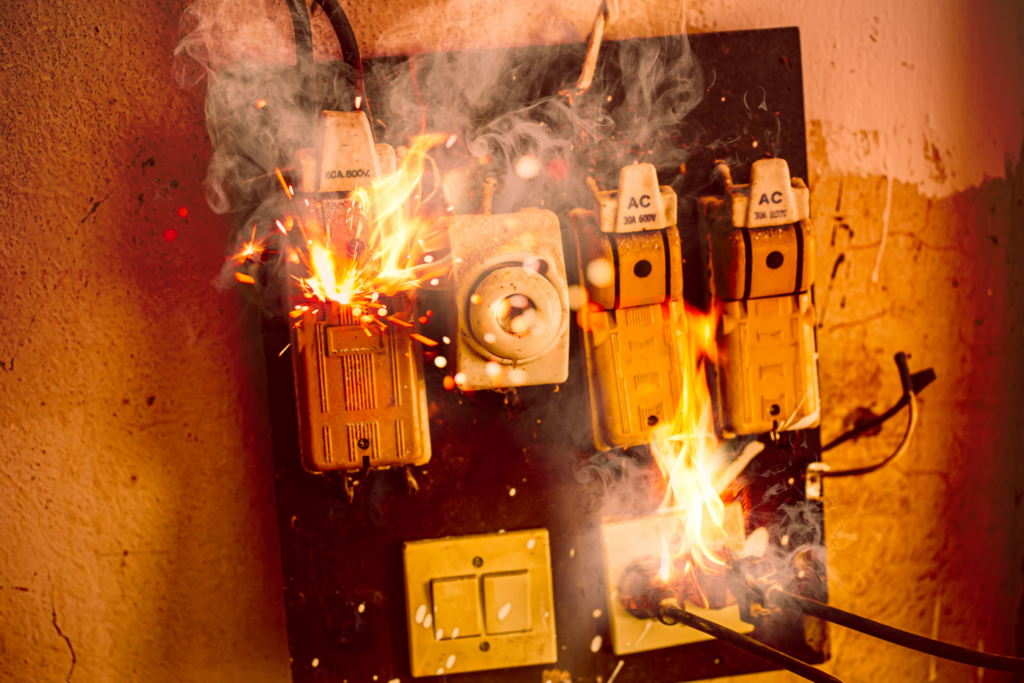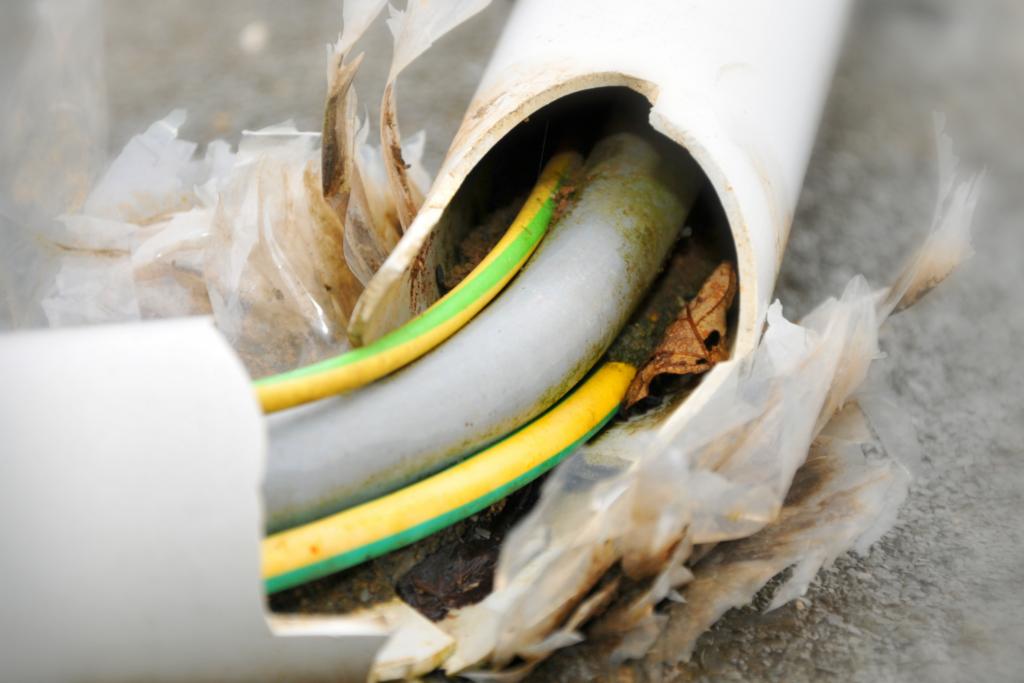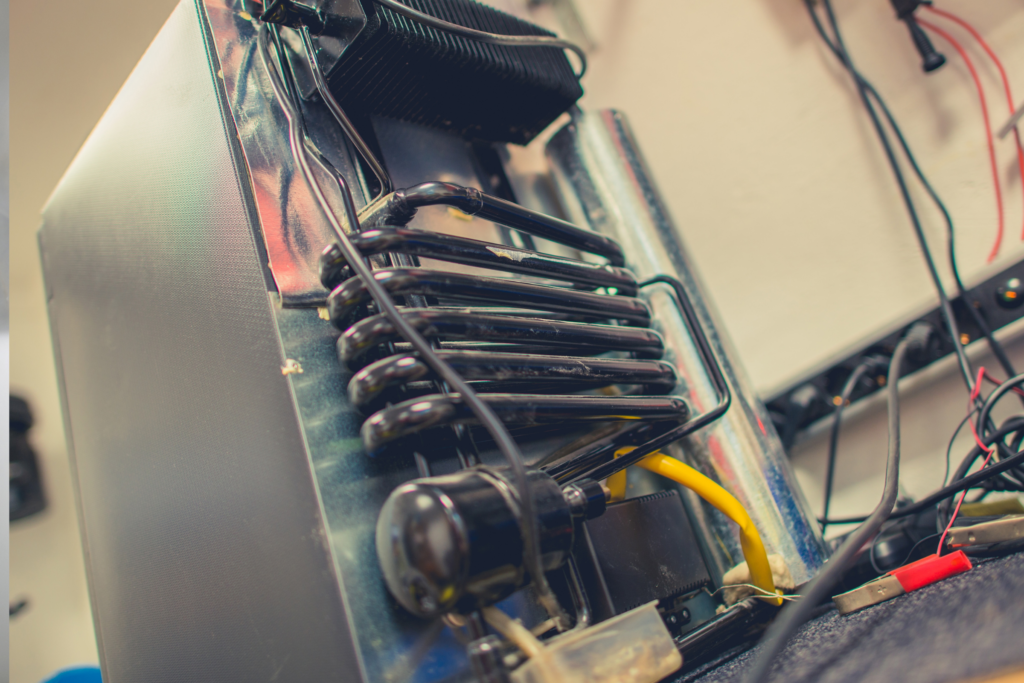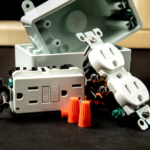RV Fridge Tripping the GFCI? (If refrigerator trips GFCI, try Investigating these 3 things!)
The best-laid plans for a camping holiday on a hot summer day in your RV can be messed up if your RV fridge cannot reliably preserve and keep the food and the drinks chilled.
While there are several possible reasons why your RV fridge may not be working consistently, one such cause you may be facing is the RV fridge tripping the GFCI.
If the RV fridge is tripping the GFCI breaker, it could result from a damaged power cord, a faulty GFCI breaker, or a heating element that is causing a ground fault. Fixing these issues is typically best left to qualified professionals; you should investigate and outsource the handy work if necessary.
Today’s article will cover three potential reasons your fridge might be tripping your GFCI breaker and offer additional information to help you understand the workings of your RV electrical system.
Why your RV fridge may be tripping the GFCI Breaker? (+ how to fix them)
If the GFCI outlet that the RV fridge is plugged into keeps tripping, check for the following reasons:
- Damage to the RV plug or power cord
- Faulty GFCI breaker
- “Leaky” heating element on RV fridge

Damage to the RV plug or power cord
Are there signs of damage to the cable insulation from the fridge?
A power cord with damaged insulation can lead to a short circuit of the inner conductors. This could in turn cause the breaker to trip.
In this scenario, the issue is with the fridge itself, not the GFCI breaker.
Power cords can be damaged in many ways: heavy usage, old age, chafed cable, cuts, and even burns.
In turn, any of these damages can cause electrical shorts that end up tripping the breaker.
How can I fix this?
Your best bet for fixing a damaged power cord is to replace the cord with a new one.
However, to avoid additional issues, ensure your new cord has the same gauge and current rating as the old power chord.

Faulty GFCI breaker
If you’ve checked the cord for insulation damage and everything looks alright, the next culprit to look into is the GFCI breaker itself.
A faulty GFCI breaker can trip independently, even if the fridge plugged into it is perfectly functional.
Sometimes, the issue can be directly attributed to the breaker rather than the fridge. There are three options to confirm your suspicions of a bad GFCI breaker.
Your first option is to plug the fridge into a different GFCI outlet hooked up to a separate breaker.
If this breaker also trips when the fridge is plugged in, the RV fridge is likely the issue.
However, if the breaker works fine, you can conclude the issue is with the old breaker.
Your second option is to plug an appliance other than your fridge into the troublesome GFCI breaker.
If the new appliance works, the breaker is probably fine, and you can blame the fridge. However, if the new appliance also trips the GFCI breaker, the fault probably lies with the breaker.
Your third and final option is to use a GFCI tester to test the outlet for wiring faults. This can include any issues with the ground, neutral, or reversed connections.
How do I fix this issue?
If the GFCI breaker proves to be the point of trouble, it’s better to leave this one to a professional. Messing with electrical outlets is a dangerous and potentially fatal game if you’re not knowledgeable on the subject.
Contact a qualified electrician to fix the fault with the wiring. Replace the GFCI outlet if the wiring checks out fine.
“Leaky” heating element on RV fridge
Heating elements are typically implemented on frost-free fridges to prevent the buildup of condensation. However, they can prove difficult.
A “leaky” or loose heating element will still properly prevent condensation; the only difference is that the current begins to leak to the ground connection, subsequently tripping the breaker.
Over time, moisture buildup in the heating element forms a pathway for a minute (yet troublesome) current to flow to the ground connection.
In a perfect world, the ground connection wouldn’t carry any current; it acts as a backbone in the case of a ground fault.
Unfortunately, once the current leaks into the ground wire, the GFCI trips.
The easiest way to test for an ineffective heating element is to use a digital multimeter to measure the resistance between each leg of the heater and the ground.
If there’s no leakage, the meter should indicate an open circuit.
However, if the meter reads differently, the heating element may be the source of your problems.
How do I fix this?
If you suspect the heating element of your fridge is the root of your GFCI trips, consult a qualified technician to confirm this. They can help safely solve your issues.
Additional RV electrical information (automatic transfer switch, power sources, and more!)
If you’re interested in learning more about the electrical system in your RV, a few topics are central to your understanding.
I will just give you a rapid-fire list and a brief overview of these topics, but I’ll link to helpful, in-depth content if you’d like to learn more!
- Automatic transfer switch (ATS) – The automatic transfer switch in your RV is what helps maintain a balance between using shore power or generator power. When the shore power goes out, it automatically switches to your generator. When the power comes back on, it’ll switch back without any issues.
- Ground and neutral wires – Basic electrical systems have hot, neutral, and ground wires. Hot wires carry the current from the power source to the load, neutral wires carry the used electricity back to the power source, and the ground wire is in place to catch the current if a ground fault occurs.
- Benefit of a GFCI breaker – The purpose of a breaker is to protect you from any electric shocks that you could be exposed to. When the GFCI breaker detects a leakage in the current, the circuit is shut off to save you from being shocked.

Why does my refrigerator keep tripping the GFCI?
It is likely from a damaged power chord, an issue directly with the GFCI breaker, or a “leaky” heating element on the RV fridge.
What do I do if my fridge keeps tripping the breaker?
The easiest solution would be to plug your fridge into another GFCI outlet connected to another breaker. It would then be best to investigate the original breaker to get to the root of the problem.
Is it OK to plug a refrigerator into a GFCI outlet?

Yes, it is actually recommended to plug your RV fridge into a GFCI outlet. Without a GFCI outlet, there is a large safety hazard.
Why does my caravan fridge keep tripping the circuit breaker?
It is likely the same reason as with other RV refrigerators: damage to the power chord, a bad GFCI breaker, or a leak from the heating element into the ground connection.
Let Us Know How We’re Doing!
Did this expertly prepared resource answer your question?
Do you have another question about home maintenance, home improvement projects, home appliance repair, or something else?
Get more information, send in questions and keep the discussion going by contacting the I’ll Just Fix It Myself company customer service team at at 1-800-928-1490 or Email us at [email protected]
